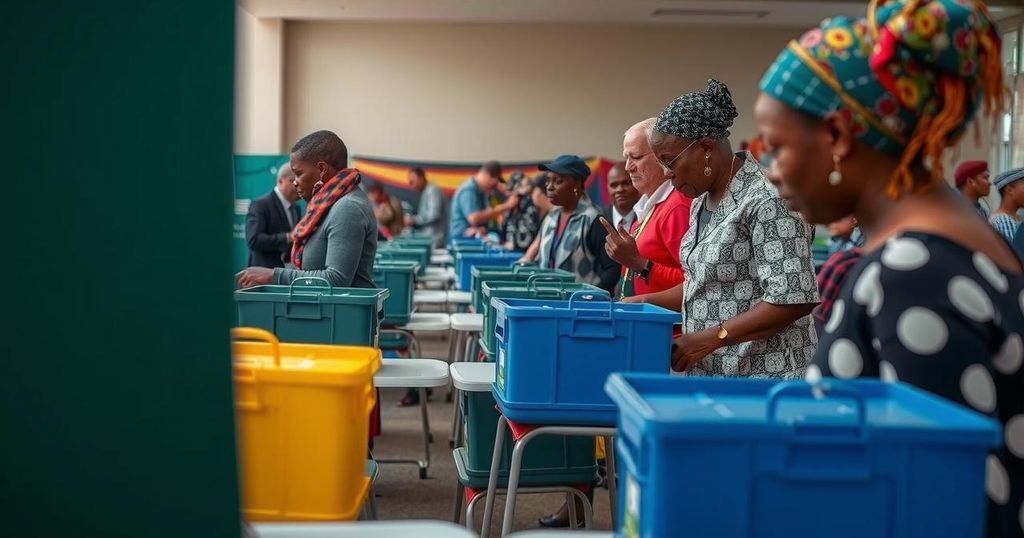Namibia Extends Election Voting Amid Ballot Paper Shortages
Namibia has extended voting for its elections due to ballot paper shortages, leading to opposition claims of electoral fraud. The ruling party’s candidate, seeking to become the first female president, faces scrutiny amid logistical challenges preventing many from voting. This extension has raised concerns about the electoral process and citizens’ confidence.
Namibia has decided to extend the voting period for its presidential and parliamentary elections until Saturday due to significant shortages of ballot papers. This decision has sparked allegations of electoral fraud from the opposition, particularly the Independent Patriots for Change party, which has criticized the extension as illegal. The vice president and ruling party’s candidate, Netumbo Nandi-Ndaitwah, seeks to become the country’s first female leader amidst claims of logistical challenges that prevented many citizens from casting their votes. Long lines have been reported at polling stations across the country as voters await the delivery of ballot papers.
The electoral situation in Namibia comes in stark contrast to the recent unrest in Mozambique following allegations of vote rigging after the Frelimo party was declared the election winner in October. About 1.4 million Namibians are registered to vote, marking a crucial moment in a nation that was once regarded as one of Africa’s most stable democracies with a history of credible elections. However, growing dissatisfaction due to high unemployment and economic challenges, especially among the youth, has led to increased scrutiny of the ruling SWAPO party, which has held power since independence in 1990. Furthermore, logistical issues faced during this election have undermined confidence in the electoral process and raised concerns about the potential for unrest if the situation does not improve.
The political landscape in Namibia is shaped by its history as a former German colony followed by South African control and subsequent independence in 1990. Since then, SWAPO has been the dominant political party, holding the presidency for 34 years. While previous elections have been considered credible, the current electoral challenges, including an unstable economy and high youth unemployment, have resulted in a growing desire for change among the electorate. This year, regional trends indicate a shift as voters are increasingly dissatisfied with traditional parties that have not managed to address contemporary issues.
In conclusion, Namibia’s decision to extend voting due to technical difficulties has led to allegations of electoral fraud from opposition parties, highlighting tensions within the political system. The situation reflects broader dissatisfaction among the population, particularly the youth, with economic hardships affecting their lives. The outcome of this election may have significant implications for the future governance of Namibia and the stability of its democracy in an evolving political landscape.
Original Source: apnews.com




Post Comment